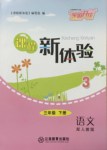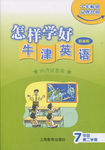题目内容
【题目】阅读下面短文,按照句子结构的语法性和上下文连贯的要求,在空格处填入一个适当的词或使用括号中词语的正确形式填空。
Once there was a prince called Kindhearted. When he was twenty years old, he asked the king to let him go traveling. The king agreed.
One day, when the prince was riding through a silent field, he suddenly saw an eagle(run) after a little swan. The prince firedgun. The eagle fell dead. The little swan came down. She thanked the prince for saving her and told hima knight(骑士) would pay him well. She said, “Remember whenever you are in need, say three times, ‘Knight, come to my help!’” the little swan flew away and the prince continued his journey.
A week(late) , he came to the capital of a kingdom. When he came to the palace, the king told the prince that his enemy’s troops (approach) the capital. the prince could defeat the enemy, he would marry his daughter to the prince. The prince promised to drive his enemies out. In the evening, Prince Kindhearted went out to the city walls and called loudly, “Knight, come to my help!” “Here I am,” said a knight. Thenknight gave the prince a magic sword and asked him to attack the troopsit. In an hour the entire army escaped.
The next morning, the prince and the princess were(happy) married.
【答案】running;his;hat;Then;later;were approaching;If;the;with;happily
【解析】1考查非谓语动词。see sb. doing 过去分词作宾补。
2考查物主代词。his 作定语,这里的所有格应和prince一致。
3考查名词性从句。 that此处引导宾语从句。
4考查并列连词。此处then表顺承关系。句意:然后小天鹅就飞跑了。
5考查形容词。一周以后,用later。
6考查动词时态。句意:敌军正在靠近王宫。
7考查状语从句。根据上下文,此处为:如果王子能打败敌军。
8考查冠词的用法。第二次提到某人要用the。
9考查介词的用法。用有形的工具常用介词with。
10考查副词的用法。happy的副词形式为happily,修饰married。

 芝麻开花课程新体验系列答案
芝麻开花课程新体验系列答案 怎样学好牛津英语系列答案
怎样学好牛津英语系列答案